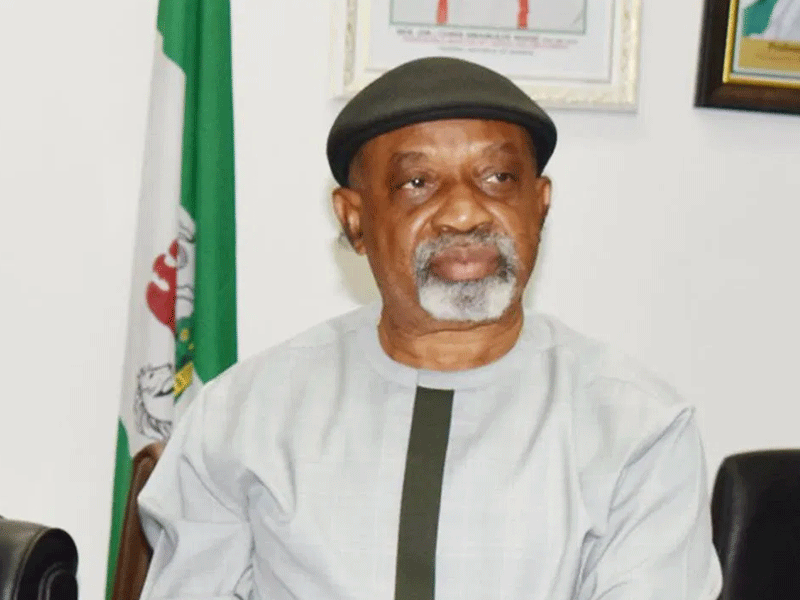
The federal government stated that it spent approximately $100 million to feed 10 million students through the National School Feeding Program.
This was part of the country’s efforts to eradicate the problem of child labor.
Dr. Chris Ngige, Minister of Labour and Employment, made the remarks when receiving the United States Ambassador to Nigeria, Mary Leonard, and Department of State officials on a courtesy visit in Abuja over the weekend.
This is stated in a statement published by the ministry’s Head of Press and Public Relations, Olajide Oshundun.
Ngige stated that the Nigerian government had implemented the school feeding program as part of its social security initiative to entice youngsters involved in child labor to return to school.
According to him, the federal government also implemented social protection programs to combat poverty, which is a key contributor to the incidence of child labor in Nigeria.
“We have launched the national school feeding program under our social security,” he says, “to entice youngsters to return to school.” We currently feed 10 million youngsters across the country. “We’ve spent around $100 million on this.” Through the Universal Basic Education (UBE) and Child Rights Acts, we have also established more schools in areas prone to child labor and made education free throughout the country.
“We established the Disability Peoples Commission to provide complete and comprehensive assistance to people with disabilities.”
“This is to ensure that they do not see themselves to be disabled.” “It is pure poverty if you do not support someone with a disability,” he remarked.
The minister praised the US government for the Department of Labor’s recent technical assistance to West Africa.
He stated that this was in the field of combating workplace violence and harassment under International Labour Organization Convention 190. (ILO).
“Nigeria and Liberia are named there, and the amount is estimated to be $5 million.” “We believe it is a start in the right direction.” We recently learned of an additional $4 million for anti-child labor operations in Nigeria.
“Ondo State was chosen as the pilot state for combating child labor in cocoa growing.” “We believe this is a positive move in the right direction.” Because, since the time we visited the Department of Labor and Trade in Washington in 2017 for the African Growth and Opportunities conference, we have made it clear that the US Government must take tangible actions for us to follow,” he stated.
“We can’t be mouthing child labor and leaving it unattended to when we know that the majority of those engaged in it are those attempting to make ends meet,” Ngige remarked.
According to the minister, vulnerable families put their underage children to work in cocoa farms, mines, street hawking, and small commerce.
“This is because the family income is insufficient due to underemployment or unemployment,” he explained.
The minister noted that campaigning alone cannot end the epidemic, adding that “it would be impossible to keep a hungry person’s audience.”
Ngige reinforced his suggestion at the AGOA summit, pushing the US to help Nigeria combat child labor through capacity building and logistics, among other things.
Earlier, Leonard expressed concern that Nigerian children were forced to the harshest types of child labor in quarries, granite mines, and other mining sites.
She vowed that her country would continue to collaborate with the Nigerian government to combat the disease, and she urged the remaining seven states to do so as soon as possible.
“The US government was glad to see a new program in Nigeria that provides seed funding to disadvantaged people to pursue programs in areas with a high prevalence of child labor,” the Envoy stated.